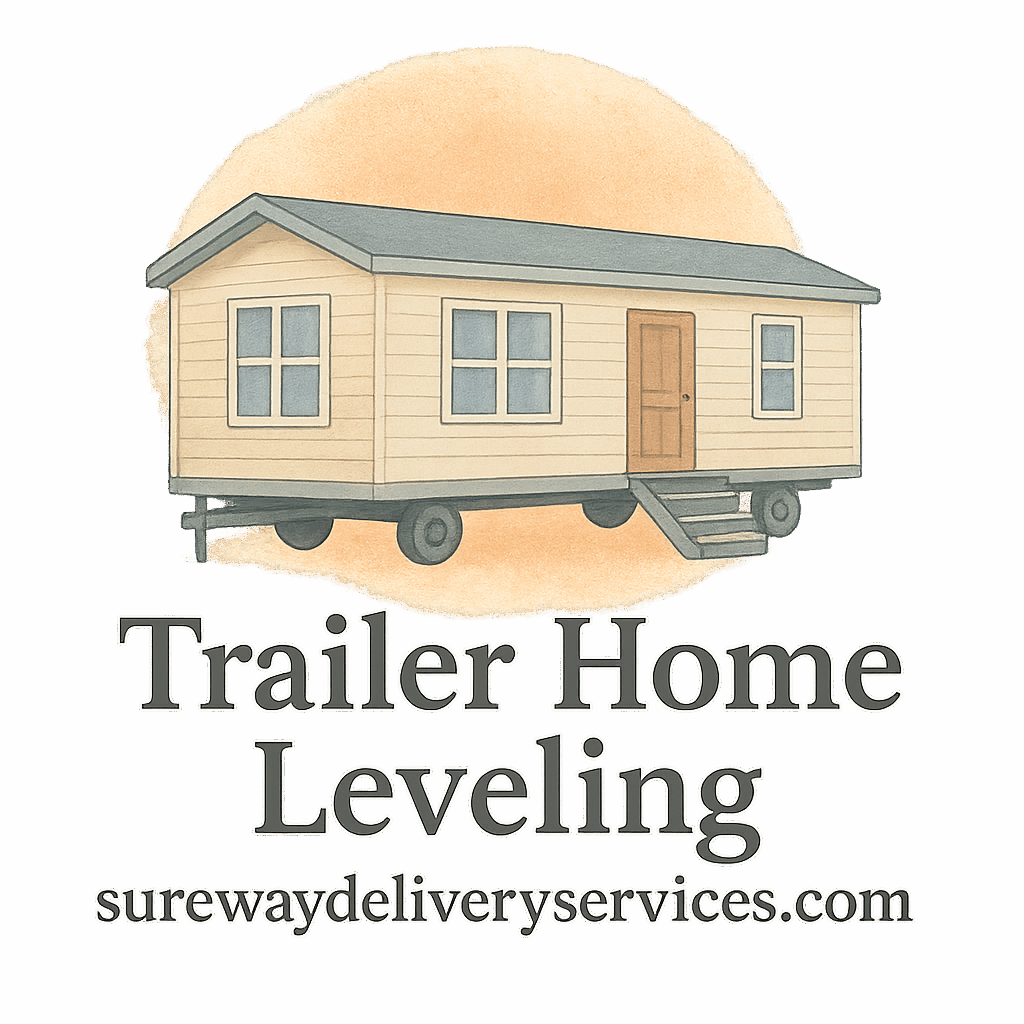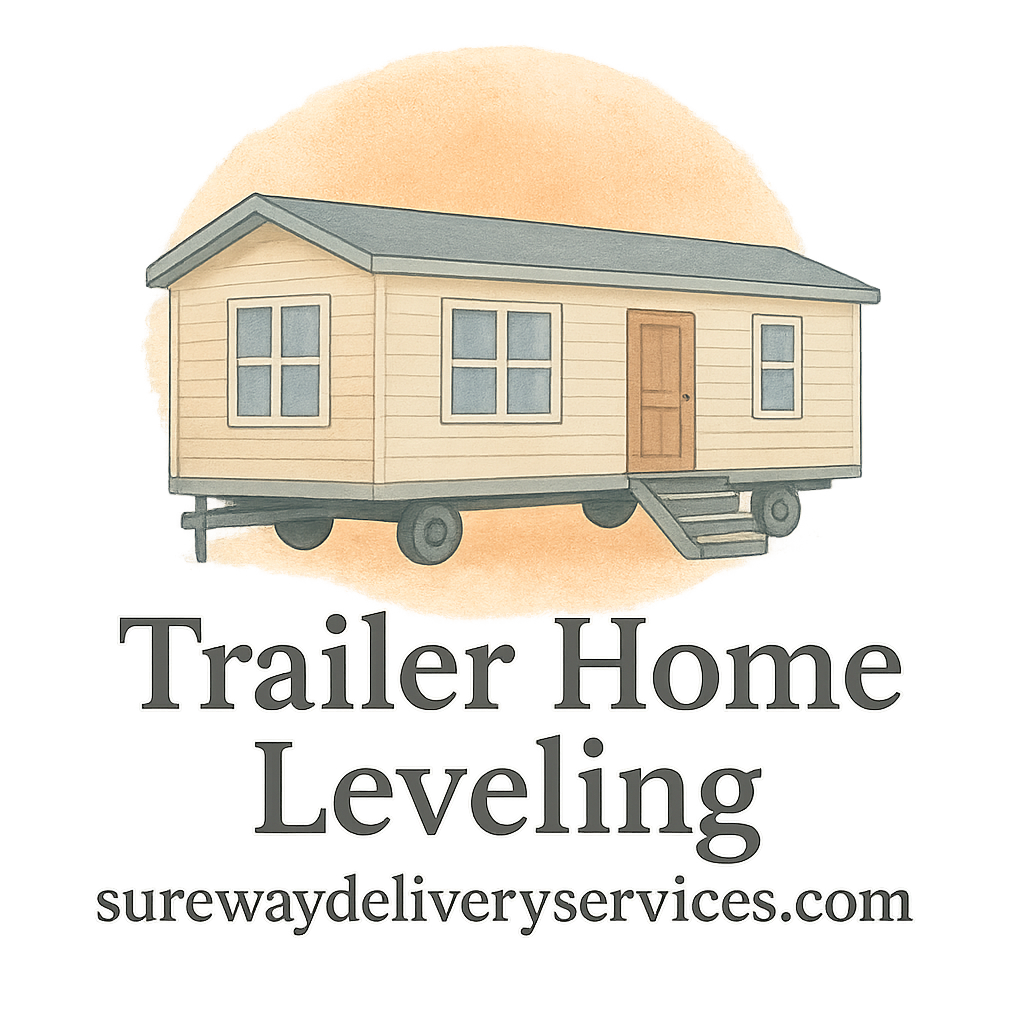Introduction
Looking for a dependable trailer home leveling company can feel like navigating a minefield. Between over-promises and under-deliveries, how do you know which one you can actually trust? Well, this guide has you covered.
Trailer homes need to be level—plain and simple. Uneven leveling leads to big-time headaches, from cracked walls to doors that won’t shut right. But the company you choose makes all the difference.
Let’s walk through the seven essential qualities every reliable trailer home leveling company should have. If you’re serious about safeguarding your mobile home, you’ll want to stick around.
Why Trailer Home Leveling Matters
Avoiding Structural Issues
When your trailer isn’t level, things go south—literally. Floors sag, doors stick, windows crack. These aren’t just annoying; they’re warning signs. Learn about these signs of trouble on this checklist.
Increasing Property Value
A level trailer home maintains its structural integrity, and with that comes better resale value. It also shows you’ve been on top of maintenance and inspections.
Focus Keyword: Trailer Home Leveling Company
We’ll use “trailer home leveling company” throughout this post because it’s not just the topic—it’s the focus. With the right firm by your side, you’re not just leveling a home; you’re leveling up your living situation.
1. Experience and Expertise
Years in the Business
A seasoned company will have tackled everything—from outdated mobile homes to complex double-wide jobs. You want a team that’s been in the trenches and seen it all.
Want a good starting point? Check this introduction to trailer home leveling to understand how complex this service really is.
Certifications and Licenses
No credentials? That’s a red flag. A professional trailer home leveling company will be licensed, insured, and perhaps even bonded. You should always ask for proof—no shame in that.
2. Transparent Pricing Structure
No Hidden Fees
One minute you’re quoted $800, and the next it’s $1,300. Sound familiar? Reliable companies are upfront about pricing and will walk you through the process.
For tips on managing your budget, check out our cost and budgeting guide.
Cost Breakdown and Estimates
A detailed estimate isn’t a bonus—it’s essential. This includes materials, labor, time frame, and additional fees if anything changes mid-job.
Avoid companies tagged for overcharging by sticking with firms known for transparent pricing.
3. Quality Tools and Technology
Use of Professional Jacks and Tools
Not all jacks are created equal. Some companies still use outdated or ill-maintained tools, and that’s just asking for trouble. Make sure they use equipment tagged for trailer jacks.
Modern Leveling Techniques
Leveling isn’t just about brute force anymore. The best companies use lasers, hydraulic lifts, and advanced leveling systems, many of which you can learn about here.

4. Positive Customer Reviews
Testimonials and Success Stories
Before committing, read through real client reviews. Look for detailed stories, not just “Great job!” comments. You want context.
Check out some success stories that spotlight trustworthy leveling contractors.
Review Platforms and Ratings
Google, Yelp, and even Facebook offer honest feedback. Look for consistent ratings above 4.0 and recent reviews—especially ones about trailer service.
5. Comprehensive Service Packages
What’s Included?
Reliable companies offer more than just the basics. Their packages might include inspection, re-leveling, skirting check, and even minor repairs.
Discover more about standard service packages and what you should expect.
Follow-up and Maintenance
Good service doesn’t end after the jacks are packed up. Companies should offer follow-ups or at least tips for annual trailer maintenance.
Pro tip: Save this trailer maintenance checklist.
6. Clear Communication and Customer Service
Responsiveness and Clarity
A good trailer home leveling company answers quickly and explains clearly. If you’re chasing them down before the job starts, imagine how hard it’ll be to get support afterward.
Look for companies praised for clear communication.
After-Service Support
You should feel supported even after the job’s done. Whether it’s a question about settling or a minor shift, reliable companies won’t ghost you.
For more support-related tips, see this list of customer-focused trailer tips.
7. Proven Track Record and Recommendations
Local References
Ask around. Neighbors, park managers, and friends can often point you toward a reliable company. These on-the-ground recommendations beat online ads any day.
You’ll find plenty of advice under the trailer recommendations tag.
Community Trust and Recognition
Local companies that regularly serve the community tend to care more. They build their reputation on honesty, not just flashy ads. These businesses are often spotlighted in tags like trailer leveling and home leveling.
Conclusion
Picking the right trailer home leveling company is more than just a convenience—it’s a necessity. From safety and comfort to property value and peace of mind, your choice impacts every aspect of your mobile living experience.
Look for experience, transparency, top-notch tools, glowing reviews, solid packages, clear communication, and a trustworthy record. Nail those seven, and you’re golden.
FAQs
1. How often should I get my trailer home leveled?
Ideally, once every 1–2 years. But always inspect after heavy storms or visible signs of unleveling. Bookmark this inspection tag.
2. What’s the average cost to level a trailer home?
It can range from $500 to $2,000, depending on the complexity and size. This cost tips tag dives deeper.
3. Can I level my trailer home myself?
Technically, yes—but we don’t recommend it. You risk injury and structural damage without the proper tools and experience. Read this on tools for leveling.
4. How do I know if my trailer is unlevel?
Look for cracks in the walls, sticky doors, or slanted floors. Explore detailed trailer issues signs here.
5. What if my trailer keeps shifting after leveling?
This could be due to soil conditions or poor workmanship. Check with a pro and learn more from the trailer details tag.
6. Are leveling services covered by insurance?
Sometimes, if it’s due to storm damage or a specific incident. Talk to your provider and refer to the service hiring section for hiring covered professionals.
7. How long does a typical trailer leveling job take?
Most take between 3–6 hours, but larger jobs or damaged trailers can take longer. Find pros that specialize in fast and accurate trailer leveling services.


